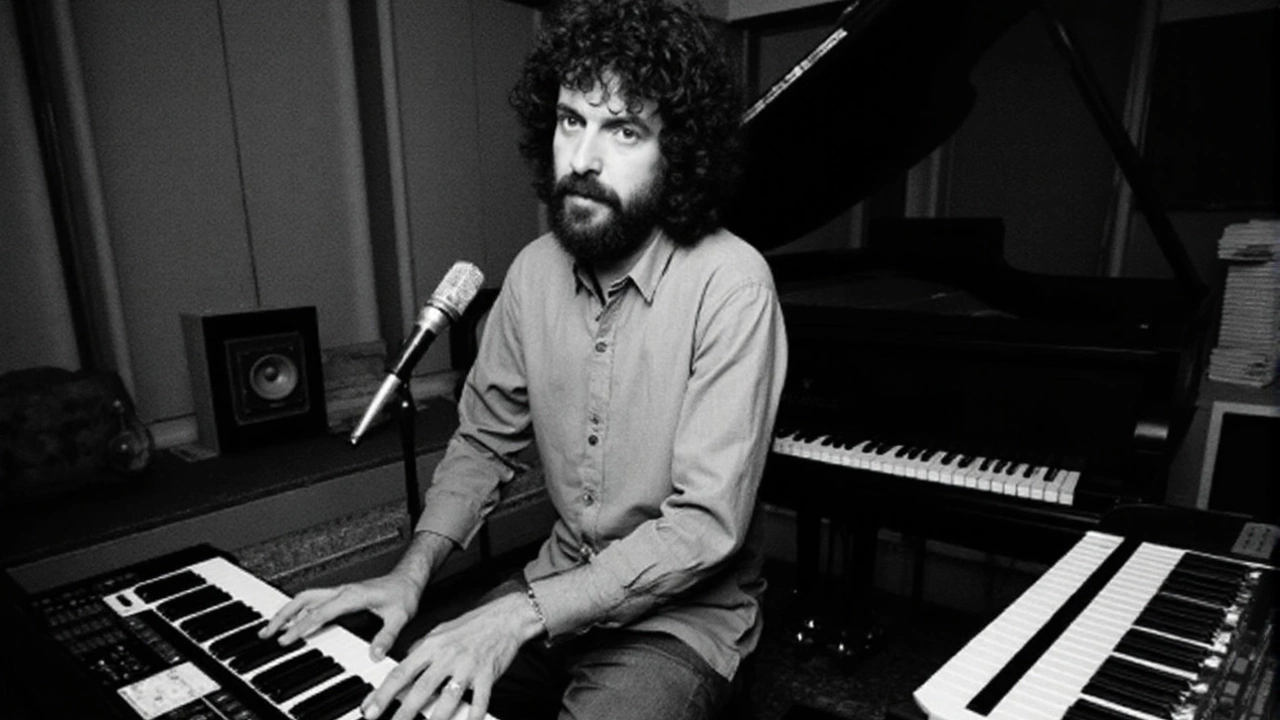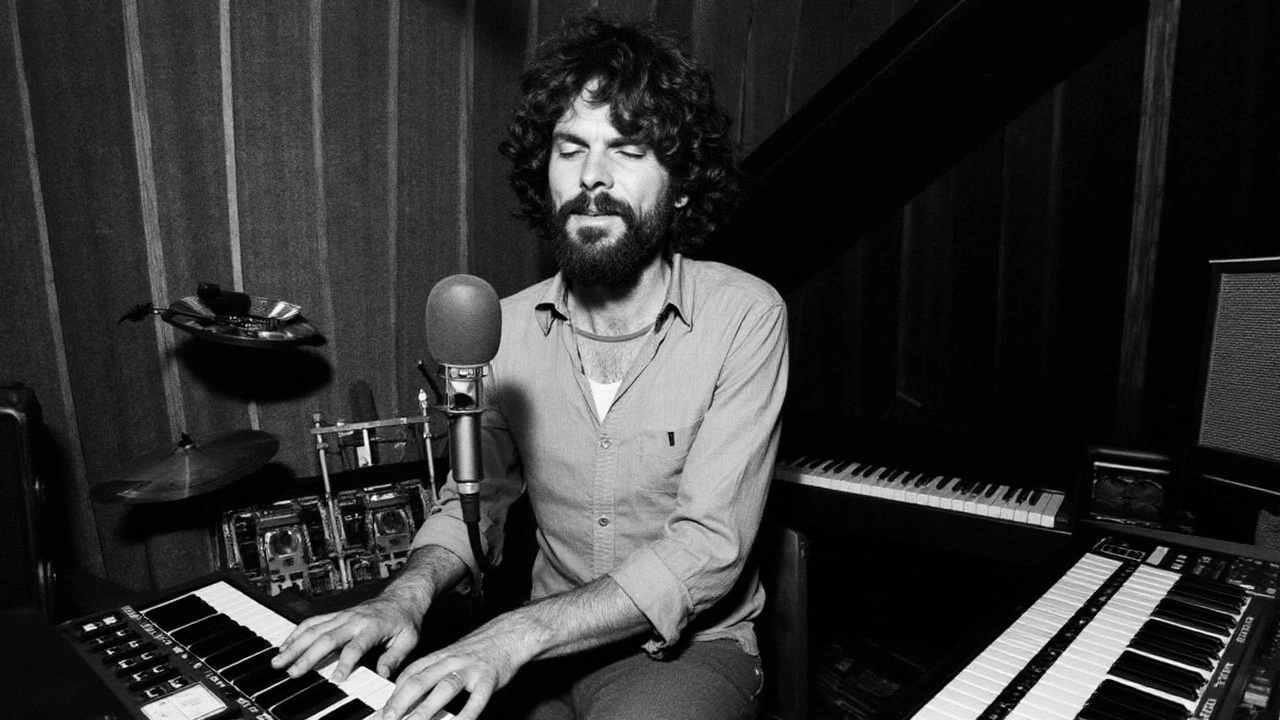The sound of a Wurlitzer, the weight of a voice
A battered electric piano and a blues-steeped baritone helped sell tens of millions of records. That was the signature of Rick Davies, the co-founder, keyboardist, and lead singer of Supertramp, who has died at 81 after a prolonged fight with multiple myeloma, a blood cancer he battled for more than a decade. The band confirmed his death, calling him the voice and pianist behind their most enduring songs.
Davies was born in Swindon, England, in 1944. He fell hard for jazz, blues, and early rock and roll, and he carried those flavors into everything he played. He gravitated to the Wurlitzer electric piano—an instrument that gave Supertramp its warm, slightly gritty core. You hear it right away on early breakouts like Bloody Well Right and, later, across the band’s stadium-filling years. His playing was tight, rhythmic, and conversational. His singing was the same—grounded, wry, and heavy with feeling.
In 1969, Davies teamed up with Roger Hodgson to form Supertramp. The two co-wrote material and built a sound around contrast: Davies’ earthier tone against Hodgson’s soaring tenor; punchy, bluesy grooves against bright, melodic pop lines. That push and pull became their trademark. It also made for a rare kind of rock catalogue—one that worked on radios, in arenas, and on headphones late at night.
The band’s ascent wasn’t instant. Early releases earned a following but not a blockbuster. That changed in the mid-1970s. Crime of the Century (1974) announced a new level of ambition and polish, with detailed arrangements and a widescreen feel. The momentum carried through Even in the Quietest Moments (1977), where the group sharpened its hooks without losing the edge in Davies’ playing. Then came the big one: Breakfast in America (1979).
Breakfast in America topped the charts in the United States and Canada, won two Grammy Awards, and ultimately sold more than 18 million copies worldwide. The album’s run turned Supertramp into a global act, and it put Davies’ voice and keyboard work at the center of classic-rock radio for decades. The Logical Song, Goodbye Stranger, and Take the Long Way Home became touchstones—not just hits, but reference points for how pop craft and rock musicianship can lock together. The records sounded lush but never fussy. They felt lived in.
Davies didn’t chase the spotlight. He anchored the group. He handled much of the band’s grit—the bar-band muscle in the rhythm section, the sly phrasing that kept big songs from feeling too slick. On stage, he sat behind the keys, driving the show while the saxes, harmonicas, and layered vocals whirled around him. Off stage, he kept things quiet, focused on songs over spectacle.
Supertramp changed course in 1983 when Hodgson left to go solo. Davies took the reins and kept the name alive with new lineups and fresh material. The band officially disbanded in 1988, then restarted in 1996 under Davies’ leadership. Through the late 1990s and 2000s, he steered tours that drew multi-generational crowds, the kind of shows where fans brought their kids to hear the songs they grew up with.
The final Supertramp performance came in Madrid in 2012. After that, health issues made touring impossible. Multiple myeloma slowly narrows options. Treatments can stretch time—transplants, targeted therapies, careful cycles to beat back the cancer—but it’s a grind. Davies kept the music close even as the big stages faded. He played locally with hometown friends in a band called Ricky and the Rockets, finding joy in the simple act of making noise with people he loved.

Legacy, partnership, and the songs that endure
Davies’ catalog runs deep because the songwriting does. He wrote and co-wrote tracks that still fit easily on playlists and car stereos decades later. Goodbye Stranger rides on a rolling groove and a winking lyric. The Logical Song balances sugary melody with a bite of social critique. Take the Long Way Home drifts into melancholy without losing pace. Even the deep cuts feel built to last, with parts that musicians want to play and lines audiences want to sing.
A big part of that staying power is texture. Supertramp’s arrangements were meticulously built but never stiff. Davies liked the sound of real air moving through instruments: Wurlitzer keys with a little bark, saxophones that cut, pianos that thump as much as they shine. The band stacked harmonies, tucked in clarinet and harmonica, and left space for rhythm sections to breathe. That’s why the records still sound alive on modern speakers—they were alive in the room.
His personal life was steady in a business that rarely is. He and his wife, Sue, were partners for more than fifty years. She worked closely with the band across tours and logistics, part of the quiet engine behind the scenes. Friends and colleagues describe Davies as warm, dryly funny, resilient—a professional who shaped sessions with feel rather than ego. That temperament helped hold a complicated project together across decades and lineup shifts.
For fans, the loss lands hard because the music is tied to moments. Breakfast in America is a road-trip soundtrack. Crime of the Century is a late-night listen in the dorm years. Songs like Give a Little Bit show up at weddings, reunions, and charity events. The band was never just a nostalgia act because the songs never left everyday life.
There’s also the matter of influence. Supertramp’s blend of pop smarts, jazz-flecked harmonies, and rock backbone shows up across modern acts that prize well-made arrangements. Producers still point to the way those records were engineered—clear, punchy, and dynamic—as a template for balancing detail with warmth. Keyboard players still talk about that Wurlitzer tone, and how Davies articulated parts that were both sturdy and singable.
Multiple myeloma, the disease Davies fought, is a cancer of plasma cells in the bone marrow. It’s more common in older adults and often managed over years with a sequence of treatments that aim to control symptoms and extend quality of life. That long fight mirrors the way many fans knew him: steady, unflashy, relentless. He kept at it. When touring stopped, he found other ways to play. When the big rooms were out, small rooms did just fine.
Supertramp’s story has its fractures—creative splits, pauses, new starts—but Davies’ through line is clear. He set a tone early: craft first, band above ego, songs built to carry weight. You can hear it in how the hits sit next to the album tracks, and how the catalogue holds together even as the lineup changed. That cohesion is rare, and it’s very much his fingerprint.
The band’s tribute says what fans already know: great songs don’t die. People keep finding them. A teenager discovers The Logical Song on a streaming playlist and falls into the rest of the album. A parent plays Goodbye Stranger in the car and the chorus sticks all summer. A musician goes hunting for a keyboard sound and ends up chasing that Wurlitzer bite. That’s how a legacy works—quietly, persistently, one replay at a time.
Davies leaves behind a body of work that still sells tickets and spins on radio, plus an example of how to lead a band without turning it into a cult of personality. He gave Supertramp its backbone. He gave listeners a catalogue that refuses to age out. And he showed, by how he carried himself, that longevity in music comes from craft, care, and the stubborn belief that a good song is worth the time it takes to get right.

